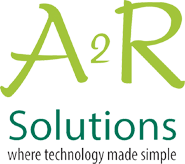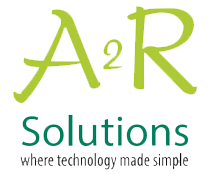
Accounting Software – What is it?
Accounting Software is a powerful tool that has revolutionized the way businesses manage their financial data. In today’s fast-paced digital era, the use of accounting software is not just a convenience but a necessity for businesses of all sizes. This article aims to explore the ins and outs of accounting software, from its definition to its impact on businesses.
There are various types of accounting software available in the market. Cloud-based accounting software, such as QuickBooks Online, allows users to access financial data from anywhere with an internet connection. On-premises accounting software is installed locally on a company’s computers, providing more control over data but limiting accessibility. Hybrid accounting software combines features of both cloud-based and on-premises solutions.
Key Features
One of the primary reasons businesses adopt accounting software is for its automation capabilities. Tasks like invoice generation, expense tracking, and payroll processing can be streamlined, reducing manual effort and the risk of errors. Financial reporting features enable businesses to generate accurate and insightful reports, providing a clear overview of their financial health. Scalability is another key feature, allowing the software to grow with the business.
Benefits of Using Accounting Software
The use of accounting software brings numerous advantages. Time efficiency is a notable benefit, as automated processes save time spent on manual data entry. The software also enhances accuracy, reducing the likelihood of human error in financial calculations. Additionally, accounting software provides valuable financial insights, helping businesses make informed decisions.
Choosing the Right Accounting Software
Selecting the right accounting software requires careful consideration. Factors such as the size of the business, industry-specific needs, and budget constraints should be taken into account. Popular accounting software options include QuickBooks, Xero, and FreshBooks, each catering to different business requirements.
Implementation Tips
To ensure a smooth transition to accounting software, businesses should invest in proper training and onboarding for their staff. Customization options should be explored to tailor the software to the specific needs of the business. Integration with other systems, such as CRM or inventory management, enhances overall efficiency.
Common Challenges
Despite the benefits, businesses may face challenges when implementing accounting software. Security concerns related to sensitive financial data are a common worry. Compatibility issues with existing systems or software can also arise during the implementation process.
Future Trends in Accounting Software
The future of accounting software is poised for further advancements. Integration of artificial intelligence will bring enhanced data analysis and predictive capabilities. Blockchain technology is also expected to play a significant role in ensuring the security and integrity of financial data.
Case Studies
Real-world examples of businesses successfully implementing accounting software provide valuable insights. Success stories showcase the positive impact on efficiency and financial management, while also highlighting challenges faced and overcome during the transition.
Conclusion
In conclusion, accounting software has become an indispensable tool for businesses seeking efficient and accurate financial management. Its evolution, from basic bookkeeping to sophisticated automation, reflects the dynamic nature of the business landscape. As technology continues to advance, the integration of AI and blockchain will further elevate the capabilities of accounting software.
Are you looking for accounting software companies in Dubai or sage 50 accounting software Dubai at best pricing? Contact A2Rsolutions for Intuit Quickbooks Online in Dubai at very reasonable pricing.



